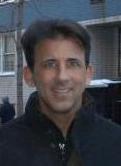But he goes on to say:
I still don't understand, frankly, why people hate literary scholars for having a professional vocabulary while remaining perfectly content with economists' using "devaluation" or philosophers' using "existentialist," or physicists' talking about a "projective Hilbert space endowed with the Fubini-Study metric."
Certainly, the chasm between art and critic in the humanities is kin to the division one sometimes sees in the sciences (between, say, theoretical physicists and astronomers). And it's true, as Lutz notes, that the artist-critic who can bridge the gap can become the literary equivalent of Richard Feynman: "Have there been excesses of obscurantism and pomposity? Yes, but as our literary writers have long known, from Laurence Sterne to Herman Melville to James Joyce to William Vollmann, sometimes nothing succeeds like excess."
All these arguments make up part of a review of recent books that tell readers how (and what) to read, including Francine Prose's Reading Like a Writer: A Guide for People Who Love Books and for Those Who Want to Write Them. Lutz shows that there's nothing new about this entire theory vs. practice debate; in fact, the "New Critical mantra" advocated by Prose and Harold Bloom and the rest of these new/old backlash warriors was itself mocked by the writers of their day. He also reminds us that these types of "how to read" books have a long tradition, going back long before Mortimer Adler's How to Read a Book (1939).
I've never quite understood who makes up the audience for these books (and I've read several of them). I mean, if you're not a professional critic or a student, wouldn't you be better off spending your limited time reading a novel instead of reading a book which tells you which novels to read and how to read them? Similarly, Lutz concludes, "In the end, Dear Reader, these books themselves are part of that dread project: literary criticism written by professors. And they all beg the obvious question: Shouldn't we be reading something better?"
All in all, it's a much-needed rejoinder to a bizarrely didactic genre. Read it quickly, then go read something by William Vollmann.
